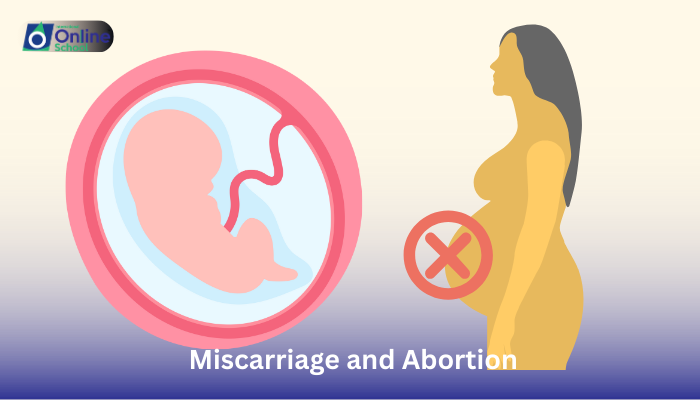
Learning Outcomes:
i. Define miscarriage and abortion, differentiating between spontaneous and induced pregnancy loss.
ii. Understand the key factors distinguishing miscarriage from abortion.
iii. Appreciate the importance of accurate information and respectful discourse surrounding reproductive health issues.
iv. Recognize the need for compassion and support for individuals experiencing pregnancy loss, regardless of the cause.
Introduction:
Pregnancy loss is a sensitive and complex topic, often shrouded in confusion and misinformation. Two terms, miscarriage and abortion, are often used interchangeably, but understanding their differences is crucial for navigating the nuances of reproductive health. In this lesson, we'll delve into the distinctions between these two experiences, fostering awareness and respect for the diverse experiences of individuals facing pregnancy loss.
i. Defining the Terms: Spontaneous vs. Induced
Miscarriage: Miscarriage is the spontaneous loss of a pregnancy before the 20th week of gestation. It can occur due to various factors, including chromosomal abnormalities, maternal health conditions, or environmental influences.
Abortion: Abortion refers to the intentional termination of a pregnancy at any stage. It can be induced medically through medications or surgically through procedures. Abortion is a personal decision, often made due to medical, social, or economic reasons.
ii. Distinguishing the Lines: Key Differences
While both miscarriage and abortion involve pregnancy loss, their core characteristics differ:
Spontaneity vs. Intentionality: Miscarriage occurs naturally, beyond the control of the woman or her partner. Abortion, on the other hand, is a deliberate choice made by the pregnant individual, often after careful consideration.
Medical Intervention: Miscarriage usually doesn't involve medical intervention, while abortion often involves medications or surgical procedures.
Emotional Impact: The emotional impact of miscarriage and abortion can vary depending on individual circumstances. However, both experiences can be profoundly grief-stricken and require support and understanding.
Respectful Discourse: Moving Beyond Misconceptions
It's crucial to remember that:
Using terms like "spontaneous abortion" to describe miscarriage can be insensitive and inaccurate, as it implies an intentional act.
Judging or stigmatizing individuals experiencing pregnancy loss, regardless of the cause, is harmful and unproductive.
Open and respectful communication about reproductive health issues is essential for dispelling myths, promoting awareness, and fostering empathy.
Compassion and Support: A Pillar of Healing
Pregnancy loss, whether through miscarriage or abortion, is a deeply personal experience. Individuals and families facing this challenge need:
Access to accurate medical information and guidance.
Emotional support from loved ones, healthcare professionals, and support groups.
Respectful and non-judgmental spaces to express their grief and navigate their healing journey.
Understanding the distinctions between miscarriage and abortion empowers individuals to navigate the complexities of reproductive health with knowledge and empathy. By acknowledging the emotional and physical challenges associated with both experiences, we can create a supportive environment where individuals facing pregnancy loss receive the care and compassion they deserve. Remember, accurate information, open communication, and respect are key to navigating this sensitive topic and ensuring that everyone experiencing pregnancy loss feels supported and understood.